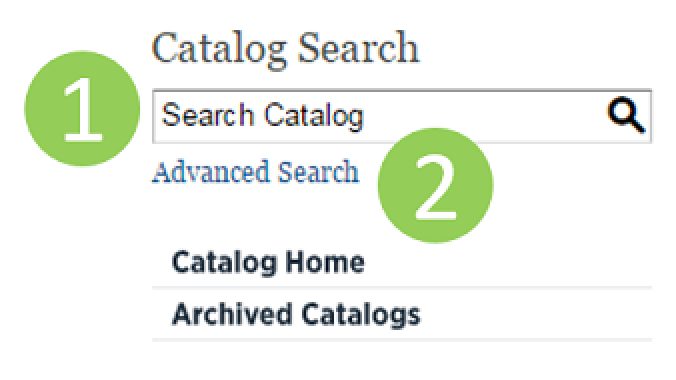2025-2026 NOVA Catalog 2025-2026 NOVA Catalog |
|
NOVA’s online catalog is the official catalog of the College. The Catalog includes information about admission to the College, enrollment, degrees and certificates and academic policies.
Programs of Study & Course Descriptions
Programs of Study refer to an associate degree with its own curriculum code and all related majors, certificates and career studies certificates.
PDF Edition
 Coming Soon! Coming Soon!
How to Search the Catalog
 1) Search Catalog allows you to search the entire catalog by keyword search. 1) Search Catalog allows you to search the entire catalog by keyword search.
2) Advanced Search allows you to search by course prefix, course number, exact match, or descriptive phrases.
You may use advanced search, for example, to see where in a program a specific course is being used.
Catalog Policy
Northern Virginia Community College provides its Catalog, handbooks, website, and any other printed materials or electronic media for general guidance. The College does not guarantee that the information contained within them, including, but not limited to, the contents of any page that resides under the Domain Name System (DNS) registration of www.nvcc.edu is up-to-date, complete, and accurate, and individuals assume any risks associated with relying upon information without checking other credible sources, such as a student’s academic advisor. In addition, a student’s or prospective student’s reliance upon information contained within these sources, or individual program catalogs or handbooks, when making academic decisions does not constitute, and should not be construed as, a contract with the College. Further, the College reserves the right to make changes to any provision or requirement within these sources, as well as changes to any curriculum or program, whether during a student’s enrollment or otherwise.
Links or references to other materials or websites provided in the above-referenced sources are also for information purposes only and do not constitute the College’s endorsement of products or services referenced.
Northern Virginia Community College is part of the Virginia Community College System (VCCS) and is governed on most matters of policy by the VCCS State Board for Community Colleges. Where a VCCS policy exists, Northern Virginia Community College follows this policy in its operations. VCCS Policy Manual is available here: https://go.boarddocs.com/va/vccs/Board.nsf/Public. NOVA Policies and Procedures are available here: https://www.nvcc.edu/policies/
|